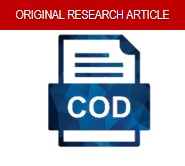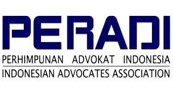Kei Traditional Marriages within Indonesia’s Legal Framework
DOI:
https://doi.org/10.46924/jihk.v5i1.214Keywords:
Marriage, Tradition, Legal FrameworkAbstract
This study examines the implementation of traditional Kei marriages in Indonesia and their interaction with the national legal system. The research employs a sociological juridical approach, utilizing library studies, structured interviews, and questionnaires for data collection. Kei traditional marriages, characterized by elaborate processions and rituals, reflect deeply-rooted cultural values such as reverence for ancestors, unity, and mutual cooperation. The patrilineal structure of Kei marriages aligns with recognized forms of customary marriage in Indonesia. Despite their distinctiveness, Kei marriages fundamentally uphold principles enshrined in national marriage law, including mutual consent and community involvement. The concept of pela gandong adds a unique dimension, emphasizing broader social cohesion. While Kei marriages effectively incorporate elements mandated by national law, ongoing dialogue is essential to address potential conflicts with evolving universal values like gender equality. This study demonstrates how indigenous traditions can enrich Indonesia’s cultural heritage while reinforcing the national legal framework, providing deeper context to the institution of marriage.
Downloads
References
Hasanudin, Hasanudin, Laesti Nurishlah, Dudi Badruzaman, Mohamad Yudiyanto, and Misella Alputri. “Legality of Interfaith Marriages in Indonesia: Legal Review, Implementation Management, and Psychological Impact on Families.” International Journal Of Business, Law, And Education 5, no. 2 (2024): 1780–87. https://doi.org/10.56442/ijble.v5i2.735.
Jalnuhuubun, Helena, Fricean Tutuarima, and Ridwan Hatala. “Adat Perkawinan Beda Kasta Dalam Perspektif Hak Asasi Manusi Di Kei, Maluku Tenggara.” Ideas: Jurnal Pendidikan, Sosial, Dan Budaya 8, no. 2 (2022): 589–94. https://jurnal.ideaspublishing.co.id/index.php/ideas/article/view/770.
Kudubun, Elly Esra. “Ain Ni Ain: Kajian Sosio-Kultural Masyarakat Kei Tentang Konsep Hidup Bersama Dalam Perbedaan.” Cakrawala Jurnal Penelitian Sosial 5, no. 2 (2016): 163–90. https://ejournal.uksw.edu/cakrawala/article/view/665.
Kusumo, Vonny Kristanti. “The Relationship Between Adat Law & National Law on Marriage in Indonesia.” Veteran Law Review 6, no. 2 (2023): 252–265. https://doi.org/10.35586/velrev.v6i2.6553.
Larasati, Novia Puspa Ayu. “Gender Inequality in Indonesia: Facts and Legal Analysis.” Law Research Review Quarterly 7, no. 4 (2021): 445–58. https://doi.org/10.15294/lrrq.v7i4.48170.
Miqat, Nurul, Handar Subhandi Bakhtiar, Safrin Salam, Kunthi Tridewiyanti, and Kayode Muhammed Ibrahim. “The Development of Indonesian Marriage Law in Contemporary Era.” De Jure: Jurnal Hukum Dan Syar’iah 15, no. 1 (2023): 54–66. https://doi.org/10.18860/j-fsh.v15i1.17461.
Napsiah, Napsiah, Muryanti Muryanti, and Yani Tri Wijayanti. “Inequality as a Construct of Customary Law: Access to Home Ownership Rights of Women in Lampung.” El-Usrah: Jurnal Hukum Keluarga 7, no. 1 (2024): 184–203. https://doi.org/10.22373/ujhk.v7i1.22456.
Tallaut, Yuli Marlen, Edi Widayat, and Sumartono Sumartono. “Eksplorasi Etnomatematika Tradisi Mas Kawin Pada Masuk Minta Masyarakat Desa Taar - Kei Maluku Tenggara.” PHI: Jurnal Pendidikan Matematika 7, no. 2 (2023): 187–93. https://doi.org/10.33087/phi.v7i2.315.
Tiwery, Weldemina Yudit. “Larvul Ngabal and Ain Ni Ain as a Unifying Pluralism in the Islands Kei Southeast Maluku.” Sodality: Jurnal Sosiologi Pedesaan 6, no. 1 (2018): 8–15. https://doi.org/10.22500/sodality.v6i1.21200.
Widanarti, Herni, and Kornelius Benuf. “Development of Rules Concerning Indonesian Marriage Agreements.” Politik Indonesia: Indonesian Political Science Review 7, no. 2 (2022): 179–93. https://doi.org/10.15294/ipsr.v7i2.34640.
Zainuddin, Asriadi, Abdul Jamil, and Dedi Sumanto. “Marriage Registration Law Reformulation in Indonesia: Studi of Law and Regulations on Marriage.” Sasi 28, no. 3 (2022): 492–505. https://doi.org/10.47268/sasi.v28i3.1033.
Thesis
Amalia, Ema Rahma Yuni. “Proses Pengambilan Keputusan Menikah Dengan Pela: Studi Kasus Pada Etnis Kei Di Kota Langgur, Kabupaten Maluku Tenggara.” Universitas Islam Negeri Sunan Kalijaga Yogyakarta, 2019. https://digilib.uin-suka.ac.id/id/eprint/37293/1/13710100_BAB-I_BAB-V_DAFTAR-PUSTAKA.pdf.
Amalia, Telaubun, Suryantoro Suryantoro, and Soedjijono Soedjijono. “Tata Cara Upacara Perkawinan Adat Masyarakat Kei Kabupaten Maluku Tenggara.” Universitas PGRI Kanjuruhan Malang, 2019.
Books
Dwipayana, A. A. G. N. Ari. Kelas Dan Kasta Pergulatan Kelas Menengah Bali. 1st ed. Yogyakarta: Lapera Pustaka Utama, 2001.
Ohoitimur, Yong. Hukum Adat Dan Sikap Hidup Orang Kei. Manado: Seri Mitra, 1996.
Rahail, J. P. Larwul Ngabal: Hukum Adat Kei Bertahan Menghadapi Arus Perubahan. Jakarta: Yayasan Sejati, 1993.
Interview
Rengur, Ahmad. “Interview on Kei Wedding Customs.” 2023.
Downloads
Published
Issue
Section
License
Authors who publish with this journal agree to the following terms:
- Copyright on any article is retained by the author(s).
- The author grants the journal, the right of first publication with the work simultaneously licensed under a Creative Commons Attribution License that allows others to share the work with an acknowledgment of the work’s authorship and initial publication in this journal.
- Authors are able to enter into separate, additional contractual arrangements for the non-exclusive distribution of the journal’s published version of the work (e.g., post it to an institutional repository or publish it in a book), with an acknowledgment of its initial publication in this journal.
- Authors are permitted and encouraged to post their work online (e.g., in institutional repositories or on their website) prior to and during the submission process, as it can lead to productive exchanges, as well as earlier and greater citation of published work.
- The article and any associated published material is distributed under the Creative Commons Attribution 4.0 International License



 Sinta ID:
Sinta ID: 


















